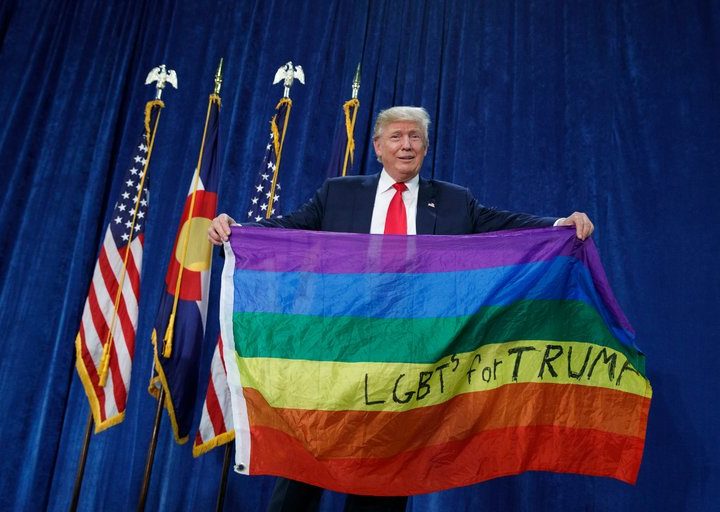This piece of mine ran last week in the Chronicle of Higher Education’s online blog, “Tenured Radical,” hosted by historian Claire Potter.
What Kind of Times are These?
© Jennifer Finney Boylan
Last week, as prelude to an evening of poetry, my colleague Peter Harris– a writer and a professor here at Colby College–gave a short reading from Adrienne Rich’s “What Kind of Times Are These.” “She burned through the fog that I lived in like an acetylene torch,” he said. “I had never seen anyone so intensely Alive with a capital A. I felt my life change in an instant.”
“This is not somewhere else but here,” he read. “Our country moving closer to its own truth and dread/its own ways of making people disappear.”
We all nodded, sharing a sense of love for the poet who had died the previous week, at the age of 82.
As Peter headed back to his seat, however, one of my students suddenly catcalled from the back of the room. “She may have been a great poet,” he said, “but she also hurt transgender people! She helped Janice Raymond write ‘The Transsexual Empire,’ a book that is still oppressing trans men and women everywhere.”
There was a lot of murmuring in the room at this moment, as you might imagine. The host for the reading, poet Adrian Blevins, reclaimed the podium and said, “Thank you. Perhaps we can find the words to talk about this issue after the reading.” Moving right along.
We did talk about the issue after the reading, although a lot of what we talked about was whether it was appropriate to denounce someone during a moment devoted to her memory. The word we most frequently found, as it turned out, was “awkward.”
And yet I was grateful, as one of the only openly trans people in the room, that someone had said something. On the way home I thought about Rich, and her genius, and her “trans-misogyny,” and above all, about the inscrutable contradictions in the lives of artists. It’s true that she counseled Raymond during the writing of 1979‘s execrable Transsexual Empire; Raymond writes that a transgender person, rather than being a vulnerable soul desperately trying to find peace and wholeness, is actually some sort of gender spy, determined to “colonize feminist identification, culture, politics, and sexuality.” Rather than responding to transgender people–men and women– with compassion and love, she essentially compared us to some cultural cousin of the aliens in Invasion of the Body Snatchers.
Rich is credited by Raymond in the forward to her book as having provided “constant encouragement.” In one chapter of the book, Raymond refers to Rich describing trans women as “men who have given up the supposed ultimate possession of manhood in a patriarchal society…” Trans-men (people born female), for their part, don’t appear to be on her radar at all.
My awareness of all of this work complicated my mourning process, to say the least. On the one hand, as for so many readers, Rich’s poetry opened doors for me and changed the way I saw the world. Her words encouraged me to believe in language as an agent of change. “A revolutionary poem will not tell you who or when to kill,” she wrote, “what and when to burn, or even how to theorize. It reminds you.. where and when and how you are living and might live, it is a wick of desire.”
One of the “wicks of desire” lit for me by Rich’s work was the hope of living an authentic life, a life defined not only by my queerness but by my love of my wife and my sons. Rich’s work simultaneously inspired and criticized that hope.
And yet, I keep wondering whether it’s fair to judge an artist by a single statement; surely she was not alone, among second-wave feminists, in feeling a sense of uncertainty around the lives of trans people. My friend, the historian Claire Potter, notes, “Some of Rich’s greatest achievements are difficult to separate from her essentialism. In my view, fighting transphobia wherever it appears is intimately linked to understanding how some liberation movements gain solidarity and traction by isolating other oppressed people whom they perceive as insignificant.”
Still, I would much rather celebrate Rich’s passion for language and feminism and social change than dwell on her contribution to a dated book that, of course, she herself did not even write.
The culture has made big strides in its understanding of transgender people since 1979, when Transsexual Empire was written. It seems as if each month brings news of more progress for trans people. The Miss Universe organization, for instance, announced this week that trans contestant Jenna Talackova–disqualified earlier from the Miss Canada pageant–will now be able to compete. (Full disclosure: the author serves on the board of directors of GLAAD, which helped negotiate the policy change.) In the last year, several trans people have managed to comport themselves in the public spotlight with dignity and grace, including Chaz Bono, who proved on Dancing With the Stars that being the son of Sonny and Cher doesn’t interfere one bit with a man’s ability to do the tango.
Meanwhile, when Mike Wallace died this week at 93, there was a similar sense of mixed emotions among LGBT Americans. On the one hand: the twenty Emmy awards. The Peabodys. The Robert F. Kennedy Journalism Award. On the other: the 1967 CBS News report, “The Homosexuals,” an hourlong special that generally condemned the “deviant” gay lifestyle; the interview of at least one of the participants was later edited to make him seem “less happy.”
Wallace later said, “I should have known better,” and regretted his participation in the program.
But for thousands of LGBT people around the country, the name of Mike Wallace will always be associated–along with his many triumphs–with a program that made our lives harder.
Mark Antony said that “The evil that men do lives after them; the good is oft interred with their bones,” but I’m not sure. Is it only by our worst moments that any of us should be judged?
A life is full of so many moments. I can attest that my own life has contained, in equal measures, things I am proud of as well as things that bring me shame. I am hopeful that it is my good works that will outlive me, and not my mistakes, although odds are that when it’s time to write my own eulogy, it will not be the love I tried to bring to my wife and sons that is first remembered, not the sentences hammered out slowly over long Maine winters, but instead, some fool thing I said on some talk show when an interviewer caught me by surprise. In spite of what I hope has been a good life as a teacher and a parent, my tombstone will almost certainly read: Asked Oprah Winfrey How She’d Like It if She Had a Penis.
If Adrienne Rich did not know the words, in 1979, that would provide solace for readers like me, she still wrote the poems that enabled me to find that language for myself. “I came to explore the wreck,” she wrote, in her most famous poem, “The words are purposes. The words are maps. I came to see the damage that was done, and the treasures that prevail.”
I met Rich, once, fleetingly, at an AWP Conference. I held a door open for her as she entered a hotel, and she passed through that open door, moving slowly with her cane. She paused upon the threshold, and looked at me. Her eyes were full of passion, and fire, and love.
“Thank you,” she said.
2 Comments
-
Well…for me as a trans woman and fan of the late Ms. Rich’s work, I must say I am glad people can evolve their positions on other people. If we lose hope in changing our minds, we might as well turn the keys over to the porpoises, with our best wishes for a better tomorrow.
-
“Raymond writes that a transgender person, rather
than being a vulnerable soul desperately trying to find peace and
wholeness, is actually some sort of gender spy, determined to
“colonize feminist identification, culture, politics, and sexuality.”This is what I mean about “Paranoid Delusions”, the whole book reads that way. Raymond is a very disturbed woman.




